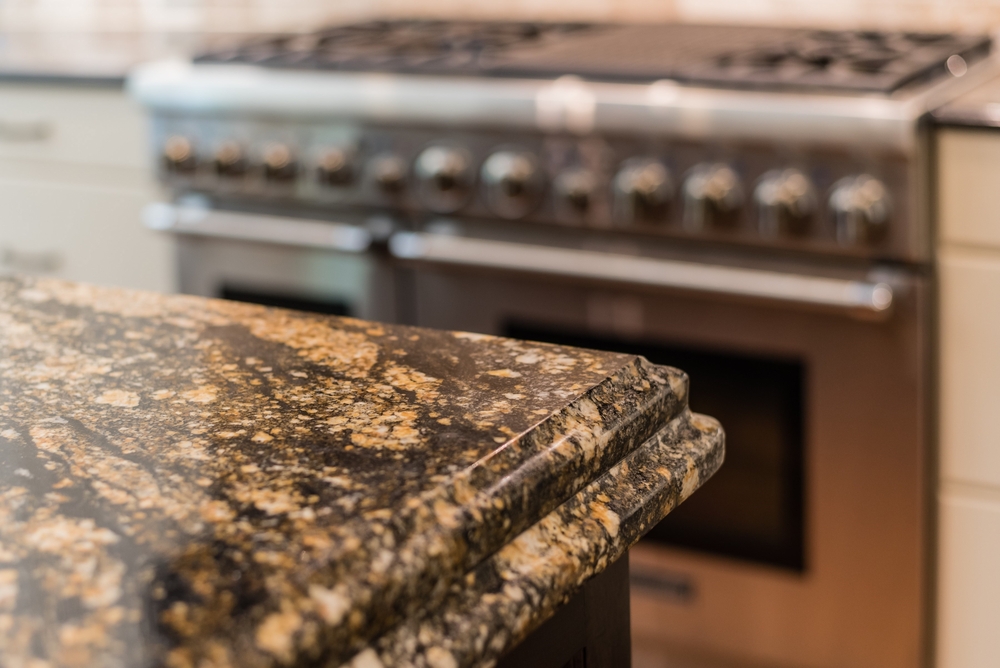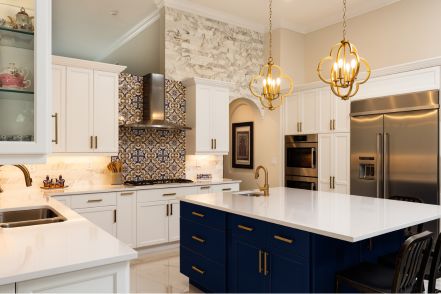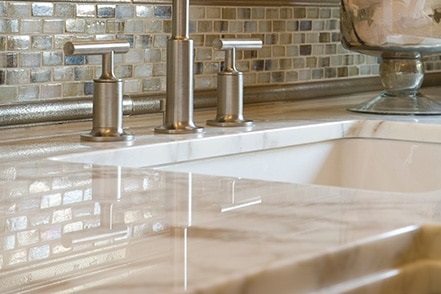When purchasing a granite or any other stone countertop, a common question from clients is whether they need to seal this countertop surface. Countertop sealing involves protecting the surface from moisture, stains and other risks that might be present, including those that can significantly detract from the value and practical use of the surface.
At Creative Granite & Design, we’re happy to offer not only a wide range of custom granite countertops, marble countertops and numerous other stone and solid surface countertop options, but also expertise on their general care, including sealing needs. Do your granite countertops need to be sealed, and how often does this need to be done? This two-part blog series will go over the basics here plus some simple steps for DIY countertop sealing.

Granite and Porosity
Granite is among many stone materials that are porous, meaning they have small spaces or holes that liquid or air can pass through if they aren’t protected. This means that to prevent any liquid staining, moisture infiltration or other similar risks, it will need to be sealed.
If this is not done, the surface is exposed to risks that otherwise wouldn’t be present. Discoloration due to staining is a big one, as is a concern with the countertop material if moisture seeps into lower layers. Luckily, there are simple ways to determine if your surface needs to be sealed or re-sealed, plus how often you’ll have to perform this task.
Water Test
The simplest method to check your granite countertop’s need for sealing: The water test. This is very easy, involving you simply pouring or dropping a very small amount of water (not more than a quarter-cup) onto parts of the countertop surface, then waiting for a few seconds.
If the water you pour does not absorb into the surface, and is instead repelled and remains above it, this means your prior seal is in good shape. If, however, the water absorbed or created a dark spot on the surface, this is a clear sign you need sealing.
Test Result Seal Indicators
Now, the above is just a broad test result format. We can get a bit more detailed in terms of how the results of the water test inform your surface’s sealing needs:
- If the water absorbs instantly, your surface requires at least a few layers of annual sealing.
- If the water takes several minutes to absorb, you’ll still need multiple layers of sealing – but these can be applied every three to five years, rather than annually.
- If the water takes over 10 minutes to absorb, but eventually does, you will only need one layer of sealant and it should last several years at minimum.
- If water takes over 30 minutes to absorb or does not absorb at all, no sealing is needed.
For more on how to determine granite countertop sealing need, or to learn about any of our granite, quartz, marble or other solid stone countertops, speak to the staff at Creative Granite & Design today.





